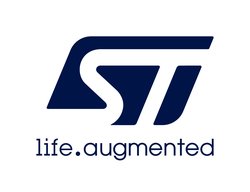DISCO-L475VG-IOT01A (B-L475E-IOT01A)
STM32L4 Discovery kit IoT node, low-power wireless, BLE, NFC, SubGHz, Wi-Fi
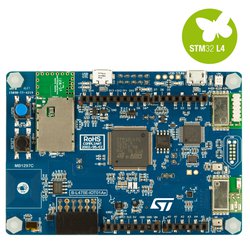
Overview¶
The B-L475E-IOT01A Discovery kit for IoT node allows users to develop applications with direct connection to cloud servers. The Discovery kit enables a wide diversity of applications by exploiting low-power communication, multiway sensing and ARM® Cortex® -M4 core-based STM32L4 Series features. The support for Arduino Uno V3 and PMOD connectivity provides unlimited expansion capabilities with a large choice of specialized add-on boards.
Microcontroller features¶
- STM32L475VGT6 in LQFP100 package
- ARM®32-bit Cortex®-M4 CPU with FPU
- Adaptive real-time accelerator (ART Accelerator™) allowing 0-wait state execution from Flash memory
- 80 MHz max CPU frequency
- VDD from 1.71 V to 3.6 V
- 1 MB Flash
- 128 KB SRAM
- True random generator (TRNG for HW entropy)
- Quad SPI memory interface (1)
- Timers General Purpose (7)
- Timers Advanced-Control (2)
- Timers Basic (2)
- Timers LowPower (2)
- Systick
- Watchdog (2)
- SPI (3)
- I2C (3)
- USART (6)
- USB OTG Full Speed
- CAN (1)
- SAI (2)
- SDMMC
- SWPMI
- GPIO (82) with external interrupt capability
- 12-bit ADC (3) with 16 channels
- 12-bit DAC with 2 channels
- Ultra LP comparator (2)
- Opamp (2)
Board features¶
- 64-Mbit Quad-SPI (Macronix) Flash memory
- Bluetooth® V4.1 module (SPBTLE-RF)
- Sub-GHz (868 or 915 MHz) low-power-programmable RF module (SPSGRF-868 or SPSGRF-915)
- Wi-Fi® module Inventek ISM43362-M3G-L44 (802.11 b/g/n compliant)
- Dynamic NFC tag based on M24SR with its printed NFC antenna
- 2 digital omnidirectional microphones (MP34DT01)
- Capacitive digital sensor for relative humidity and temperature (HTS221)
- High-performance 3-axis magnetometer (LIS3MDL)
- 3D accelerometer and 3D gyroscope (LSM6DSL)
- 260-1260 hPa absolute digital output barometer (LPS22HB)
- Time-of-Flight and gesture-detection sensor (VL53L0X)
- 2 push-buttons (user and reset)
- USB OTG FS with Micro-AB connector
- Expansion connectors:
- Arduino™ Uno V3
- PMOD
- Flexible power-supply options: ST LINK USB VBUS or external sources
- On-board ST-LINK/V2-1 debugger/programmer with USB re-enumeration capability: mass storage, virtual COM port and debug port
Board pinout¶
Pins Legend¶
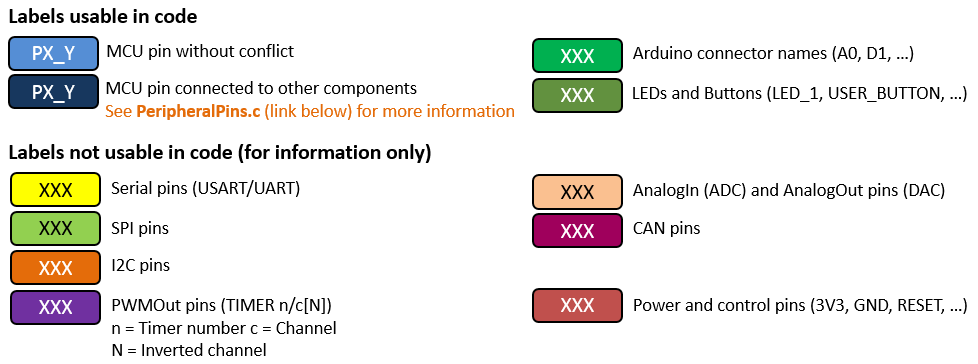
You can find more details on the available pins and labels in the PeripheralPins.c and PinNames.h files.
These files can be found in:
- ARMmbed/mbed-os repository on GitHub (up-to-date version, used with mbed CLI commands)
Arduino-compatible headers¶
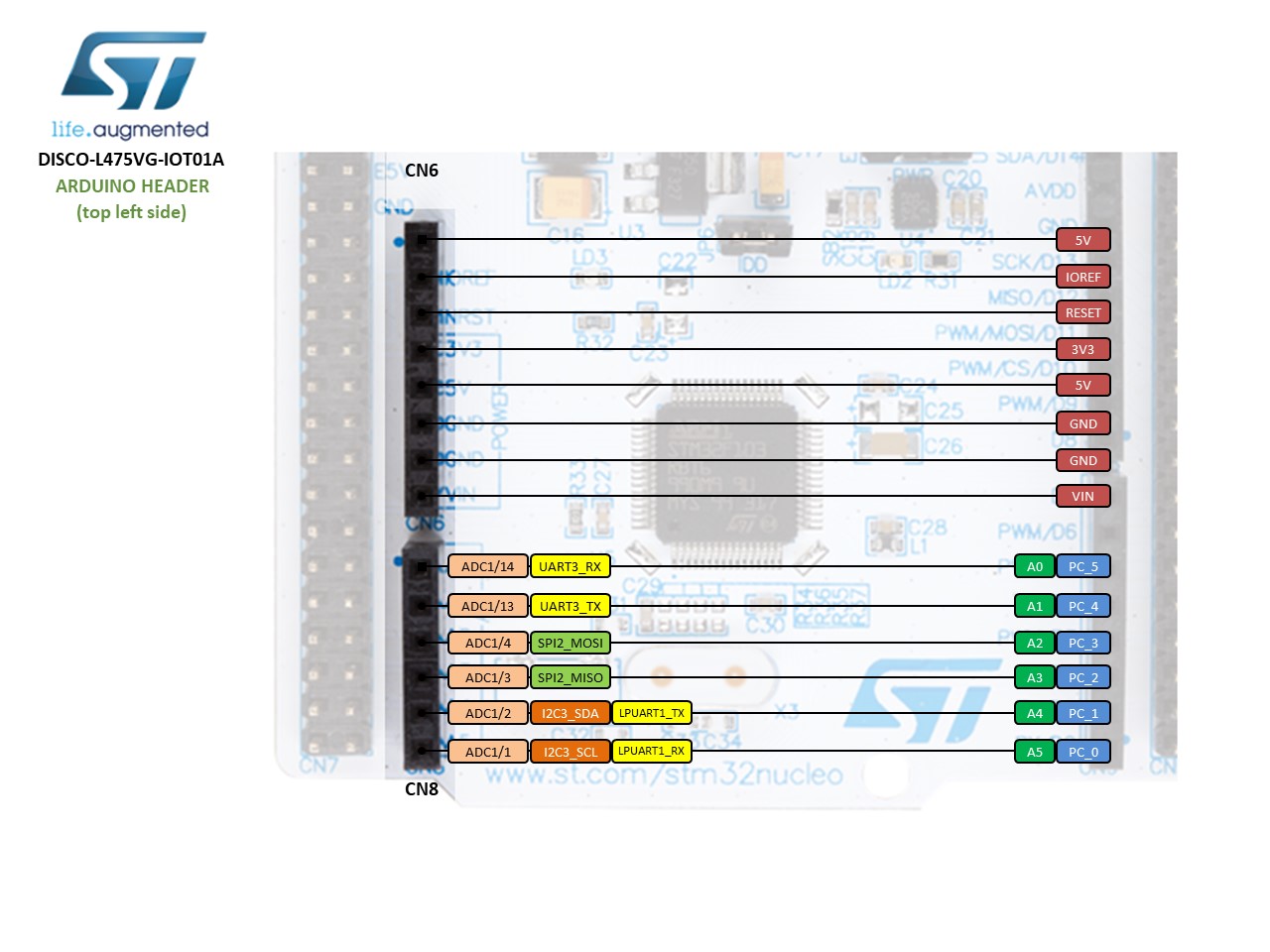
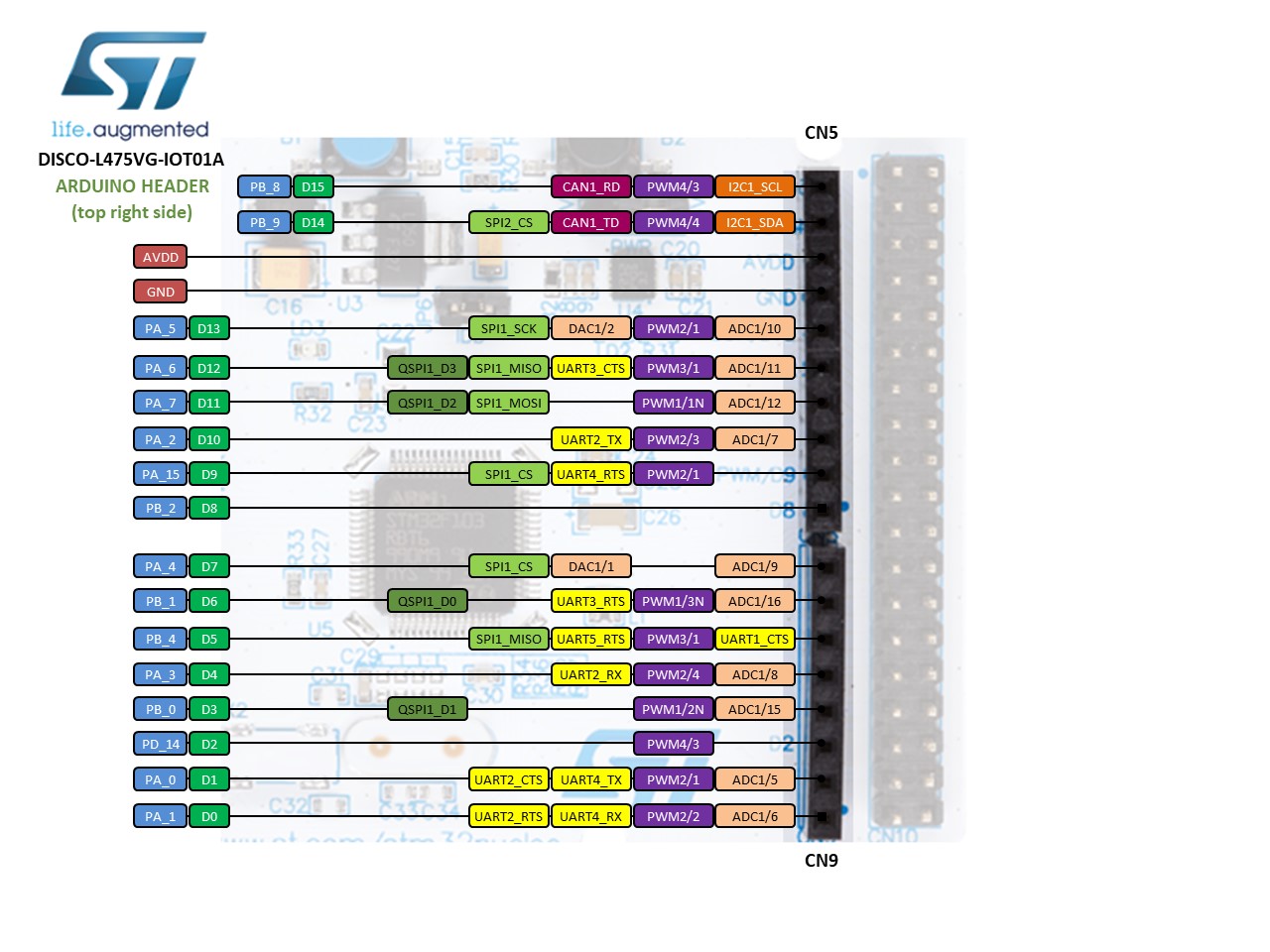
Other¶
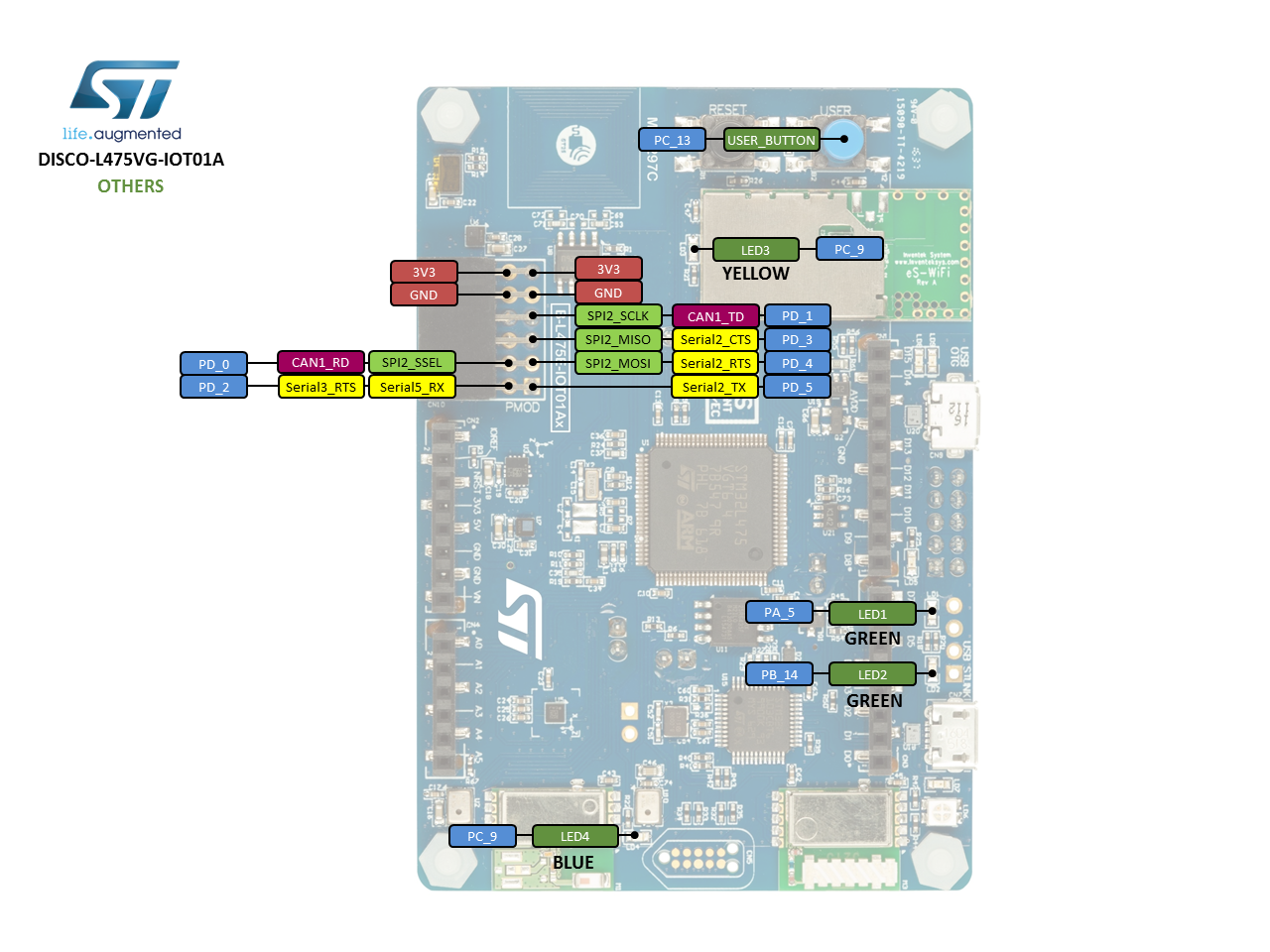
Supported shields¶
ST X-NUCLEO boards¶
Other Non-ST boards¶
See here.
Technical references¶
Wifi FW update¶
https://os.mbed.com/teams/ST/wiki/How-to-make-wifi-tests#wifi-firmware-update
Known limitations¶
The following section describes known limitations of the platform. Note that general issues are tracked into the mbed repository available on GitHub.
- On board revision D are supported
Tips and Tricks¶
Find more information in ST WIKI pages.

